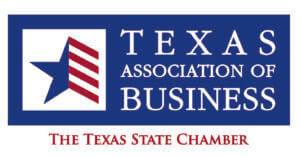Cutting Red Tape, Lowering Costs: A Historic Session for Texas Small Businesses
By Gabriela Perdichizzi, VP of Government & External Relations, Texas Association of Business
Small businesses are the backbone of Texas’ economy. They create jobs, fuel innovation, and bring vitality to our communities. Yet, too often, they’re forced to navigate a maze of outdated rules, high fees, and regulatory hoops that slow growth and stifle opportunity.
This legislative session, Texas took decisive action to change that. Thanks to the leadership of Governor Greg Abbott and guided by the recommendations of the Governor’s Small Business Freedom Council—co‑chaired by TAB President & CEO Glenn Hamer—lawmakers delivered one of the most impactful pro‑small business agendas in state history.
It wasn’t just about passing bills; it was about listening to entrepreneurs. The Council brought together nearly 700 small business owners from across the state to identify their biggest pain points, and the Legislature responded with meaningful reforms in every major category the Council outlined.
Glenn summed it up well: “This was a historic session for small businesses in Texas. From the historic increase in the business personal property tax exemption to sweeping measures that cut red tape and modernize outdated processes, lawmakers delivered meaningful reforms across every major category identified by the Governor’s Small Business Freedom Council.”
One of the most significant victories was the overhaul of how Texas adopts and enforces regulations. The creation of the Texas Regulatory Efficiency Office will help identify and eliminate unnecessary rules, reduce fees and training hours, and ensure agencies work together to streamline their processes. For small business owners, that means less time dealing with government bureaucracy and more time serving customers.
Other reforms zeroed in on specific industries and challenges. Restaurants and mobile food vendors will no longer face a patchwork of duplicative local permits and inconsistent health regulations, thanks to new statewide standards and notice requirements. Home‑based entrepreneurs won a safeguard against unnecessary zoning changes and permits if their businesses don’t disrupt neighborhoods. Even niche producers, like small‑scale honey harvesters, will see their work simplified with regulations aligned to agricultural norms rather than food service rules.
Perhaps the greatest victory, and the number one priority of the Council, the Legislature raised the business personal property tax exemption from $2,500 to $125,000, freeing thousands of small business owners from an annual tax and reporting requirement, eliminating duplicative taxes, and allowing entrepreneurs to reinvest more in their companies. And for new and smaller entities, the Secretary of State now has the flexibility to reduce or waive expedited filing fees—a small change with a big impact for startups watching every penny.
We also saw a major win with the extension, enhancement, and permanent establishment of Texas’ R&D tax credits. These credits were not only made more generous, but also more accessible to small and veteran‑owned businesses. By simplifying how the credits are calculated and applied, and allowing small businesses who don’t typically owe franchise tax to either carry credits forward or receive a rebate, Texas has opened the door for more entrepreneurs to invest in research, innovation, and product development without being constrained by their tax liability in a given year.
Access to talent got a boost as well. Skilled professionals licensed in other states will now find it easier to work in Texas without redundant paperwork or costly delays. For small businesses struggling to hire, that means a wider pool of qualified candidates.
And in one of the most forward‑looking moves of the session, HB 149 and other AI‑related legislation ensured that small businesses would not be overly burdened by unnecessary or premature AI regulation. Instead, Texas embraced a “sandbox” policy approach—allowing businesses to test and deploy AI technologies in a flexible, low‑risk environment. This will encourage innovation, lower barriers to adoption, and give small enterprises the chance to harness AI’s potential for efficiency, marketing, customer service, and operational growth.
Finally, this session brought state government a step closer to a simpler, more modern digital experience. Agencies will be required to improve the usability, mobile responsiveness, and accessibility of their websites, making it faster and simpler for taxpayers and small business owners to file forms, renew licenses, and access information. Even the workers’ compensation system will see efficiency gains, with certain hearings now able to be held via videoconference rather than requiring long and costly travel.
Taken together, these changes mark a turning point. Texas didn’t just talk about supporting small businesses—it made structural changes that will have a lasting impact on the cost of doing business, the ease of compliance, and the ability to compete.
TAB is proud to have helped lead the way, but this work is never finished. As we look ahead, we’ll keep building on this momentum, making sure Texas remains the best state in the nation to launch and grow a business. Because when small businesses succeed, Texas succeeds.
